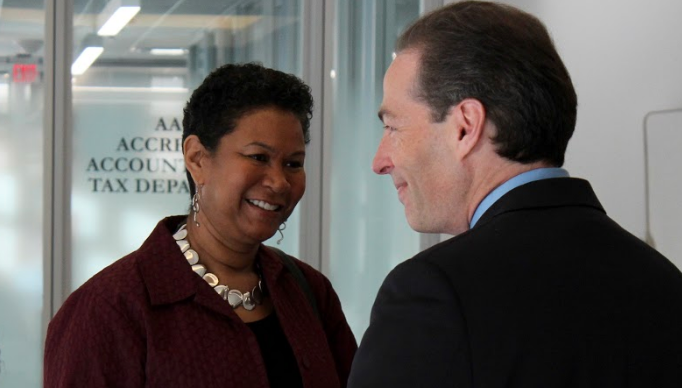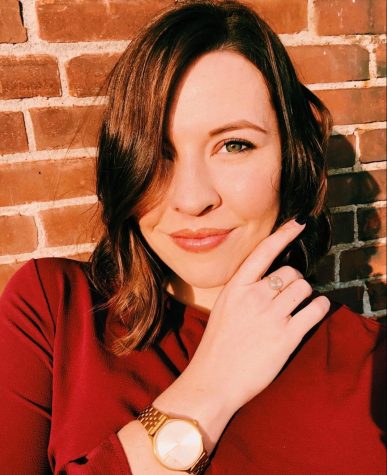A diverse group of law students came together Tuesday evening for an end-of-year banquet of “Hearing Her Story,” hosted by Suffolk’s Women of Color Law School Association. The event was Reflection of Women on the Bench, “Dynamic Women Transforming Society.” Tuesday’s event aimed to give students an inside look at what it is like to be a woman of color in the legal profession.
SJC Justice Kimberly Budd, who received her law degree from Harvard in 1991, and Honorable Shannon Frison who received her law degree from Georgetown in 1995 served as the panelists for the event.
Clare Prober, a first-year law student who is interning with Budd this summer had been looking forward to the event. “I’m excited to see a woman’s perspective on being a judge, especially since it is a largely male dominated profession. I think a lot of women can relate and see the value in this event.”
Both panelists did not foresee becoming a judge at some point in their careers.
“I had been practicing for 15 years and it never occurred to me. I took one look at the application process and I said, ‘No way, I am not doing that,’” said Budd.
Budd was inspired by fellow college graduate and former United States President Barack Obama, and developed a desire to have an affect on the laws of the commonwealth. Budd said she wanted to have more of an impact on how cases are tackled.
“I sort of missed the money train and that is the only thing I regret,” said Frison on her regrets. “I loved serving in the Marine Corps, I would never regret that, but it is a challenge to balance both fulfillment and financial security.”
The panelists took a moment during the discussion to speak directly to the women of color in the room. Budd said that women of color must always be the most prepared person in the room, to leave no room for mistakes, and to persevere through any and all microaggressions and implicit bias.
“I don’t think it matters if you are black or a woman or whatever. What they think of you doesn’t matter, you’ve got to tune that out. Merit is the only thing that matters; you’d be surprised how far that’ll get you,” said Frison.
Budd also explained to the present students that it is important to keep track of all the work they do, and why it is important to their careers. Frison advised students that one of the best skills they can acquire is learning how to be versatile in every situation.
“Be as well rounded as you can, both in law and in life. The people with the most success are the ones who are the most well rounded,” said Frison. “Whatever you do, be the best you can be.”
During the second half of the night, the floor was opened up for questions from audience members. Dorothy Franks, a first year law student asked the panelists about how their lives had changed since becoming judges.
“Socializing becomes the hardest because you really can’t branch out as much as you would have in other professions. You get to socialize with other judges and that’s about it,” said Frison.
Because of how isolating the profession can be, having strong connections outside of work is essential, and Budd said that it is important to hang on to the relationships with people outside of the legal profession.
“I want to be known for taking the rights of individuals seriously” said Frison when asked about her professional legacy. “I want to be known for upholding the rule of law,” said Budd.















